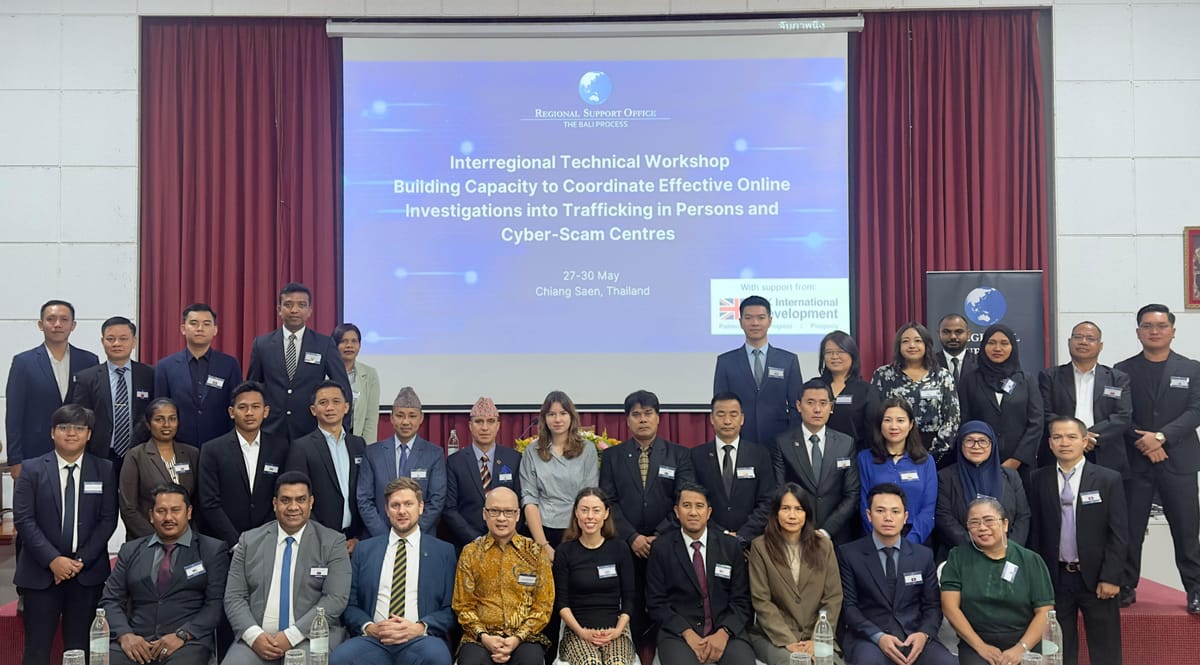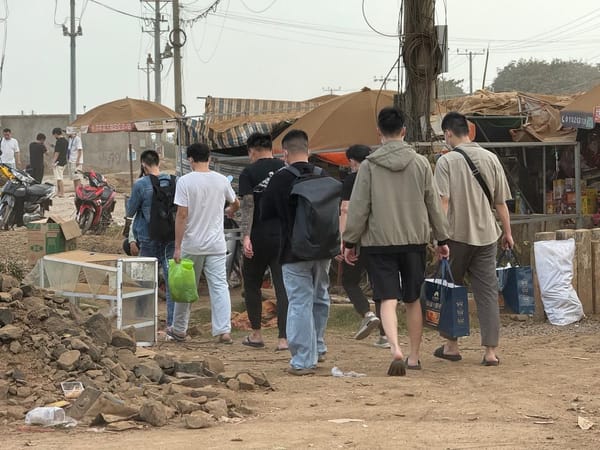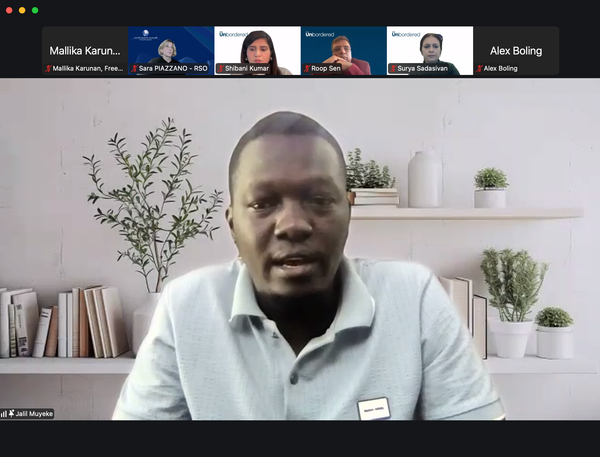Trafficking investigators in Southeast Asia receive training on cross-border cooperation
RSO hosts a workshop on cross-border coordination for trafficking investigations, a report explores how China is circumventing a U.S. ban on forced labour imports, and trafficking survivors file a record-breaking number of civil cases.

Investigators and law enforcement officials from 16 South and Southeast Asian countries met in Chiang Rai, Thailand, last week for a technical workshop on cross-border cooperation relating to investigations into trafficking for cyber-scam activities, hosted by the Regional Support Office of the Bali Process (RSO) and supported by the UK Government.
Nationals from more than 65 countries have been trafficked into cyber-scam centers in the region over the past few years, and cross-border law enforcement cooperation is crucial for efforts to disrupt these operations and prevent further exploitation. As scamming compounds continue to expand at pace, and transnational crime gangs gain access to ever more sophisticated and covert technology, secure and reliable communication channels that allow stakeholders to proactively and consistently share information are central to tackling this criminal ecosystem and dismantling its constituent parts.
During the four-day workshop – titled “Building Capacity to Coordinate Effective Online Investigations into Trafficking in Persons and Cyber-Scam Centres” – participants explored enhanced information-sharing approaches and applied online investigation skills using real case studies. Some discussed their experience of using Open Source Intelligence (OSINT) in cyber-scam investigations, with a particular focus on cross-border intelligence sharing through both formal and informal channels, while others exchanged insights into their frontline experiences, with Chiang Saen immigration officials offering their background knowledge of the situation.
Breakout groups and task-oriented activities allowed investigators from different countries to exchange insights from their national contexts and build professional relationships, fostering further opportunities for cross-border coordination and encouraging discussions around developing and maintaining networks for information sharing, situational updates, and applications of OSINT to trafficking for forced criminality cases.
Freedom Collaborative was invited to lead two sessions during the workshop: a situational update on trafficking for forced criminality, led jointly with RSO, and a presentation on victim identification and trafficking recruitment.
The situational update provided an overview of the current state of affairs regarding trafficking for online scamming across Thailand’s borders, particularly in Mae Sot, as well as the current response. RSO presented findings from its joint report with the Global Initiative Against Transnational Organized Crime (GI-TOC), “Compound Crime: Cyber scam operations in Southeast Asia”, including details relating to the schematics of cyber-scam compound activities and a typology of scams, while Freedom Collaborative presented on the current intervention response and the victim screening process taking place in Mae Sot, and the collaborative processes for both intervention and repatriation undertaken by government bodies, law enforcement and NGOs.
The session on victim identification and recruitment offered a more comprehensive overview of victim typology and the identification of individuals exiting cyber-scam compounds, highlighting the challenges in positively identifying victims of trafficking as opposed to those who are partially or fully complicit in this type of crime. Defying binary definitions of “trafficking victims” and “willing participants”, many survivors exiting cyber-scam centers describe a nuanced experience – for instance, victims can become active participants in the compounds, hold multiple roles which shift over time, and become complicit in the trafficking of others even though they are victims themselves. Workshop participants were given various case studies and scenarios to discuss, reflecting on whether individuals in these varying roles should be considered as victims of forced criminality, and were further encouraged to consider each individual and their lived experience on a case-by-case basis, rather than grouping them together.
At the conclusion of the event, RSO and the UK Foreign, Commonwealth and Development Office encouraged participants to continue to communicate with each other, collaborate on cross-border investigations, create mechanisms for sharing cyber-intelligence, and continue to build a united, collective and cooperative response to this ongoing trafficking crisis.
Here’s a roundup of other noteworthy news and initiatives:
A joint investigation by The New York Times, the Bureau of Investigative Journalism, and Der Spiegel has found that the Chinese Government has circumvented a U.S. ban on imports from the Xinjiang region – implemented in 2021 due to China’s mass detention and surveillance of ethnic Uyghurs and the forced labour imposed upon them – by relocating Uyghur workers to factories across the country, often beyond the reach of supply chain auditors and customs enforcement.
The Human Trafficking Legal Center has published its 2024 Civil Litigation Data Update, highlighting key numbers, trends and impacts, including more than US$940 million in damages awarded over 21 years. In 2024 alone, trafficking survivors filed a record-breaking 280 federal civil trafficking cases in the U.S., the highest number ever recorded in a single year.
U.S. Customs and Border Protection has issued new guidance on how entities can seek to modify or revoke Withhold Release Orders and Findings tied to forced labour concerns. The guidance outlines key steps and identification, correction and prevention processes to help companies remediate forced labour in their supply chains and comply with U.S. trade laws.
Veteran journalist Dato Arulldas Sinnappan last week launched his book “Mass Graves: Uncovering the Killing Fields”, documenting the harrowing tragedy of the Wang Kelian mass graves discovered near Malaysia’s border with Thailand. The launch event, attended by state officials, activists, and community leaders, highlighted the book’s powerful call for justice, accountability, and human dignity in the face of one of Malaysia’s darkest human rights crises.
Brazilian prosecutors are suing Chinese electric vehicle maker BYD and two contractors over allegations of human trafficking and “slave-like” conditions at a factory construction site in Bahia. Authorities say 220 Chinese workers were rescued from harsh conditions, including withheld wages, passport confiscation, and overcrowded living quarters, prompting demands for US$45.5 million in damages.
Freedom Collaborative and the Global Learning Community invite you to our first “Brave Conversation” on 11 June from 10:00 to 11:30 EST (15:00 BST), focused on the shifting landscape of funding in our sector. Bring your questions, insights, and experiences as we engage in an open and honest dialogue about what funding really means for our work. Register here!




